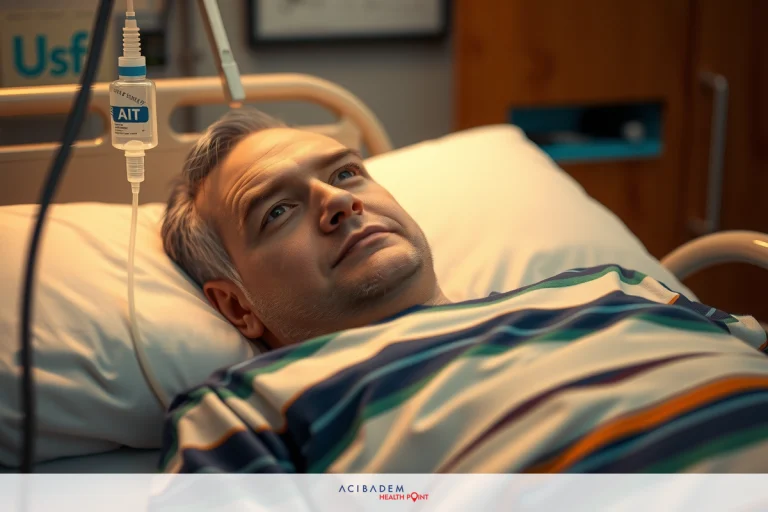What happens if I drink water too fast after gastric bypass
What happens if I drink water too fast after gastric bypass Gastric bypass surgery is an important medical intervention that necessitates attentive post-operative care to ensure the best possible recovery. One aspect of this care includes maintaining proper hydration levels. The manner and speed at which water is consumed can significantly influence the patient’s comfort and recovery process.
Drinking water too quickly after surgery can lead to discomfort and potential complications. Understanding the reasons behind these risks and knowing how to properly hydrate your body is crucial. This article aims to provide insights into the potential effects of drinking water too quickly after gastric bypass and offers tips on appropriate water intake following the surgery.
Potential effects of drinking water too fast after gastric bypass
The process of hydration after gastric bypass surgery is crucial yet delicate. Drinking water too quickly can disturb the healing process and cause discomfort. One common issue is known as “dumping syndrome.” This occurs when food or liquid enters the small intestine too quickly, causing nausea, vomiting, bloating, cramping, diarrhea, dizziness, and fatigue. While it’s not life-threatening, dumping syndrome can be very uncomfortable.
Drinking water rapidly can also strain the newly formed stomach pouch. The gastric bypass procedure creates a smaller stomach pouch that can only hold about an ounce of food or liquid at a time initially. Drinking large amounts of water quickly can stretch this pouch, potentially damaging the surgical sutures and causing leakage. This could lead to serious complications such as infection or even another surgery to repair the damage.
Additionally, fast consumption of water can lead to dehydration. This may seem counterintuitive, but when water is consumed too quickly, it can pass through your system before your body has a chance to absorb what it needs. This rapid passage can also flush out essential nutrients before they have been absorbed, leading to deficiencies. Signs of dehydration include dry mouth, decreased urine output, headache, and dizziness. Therefore, post-surgery hydration should be approached with patience and caution to prevent such potential effects.

Tips for proper water intake after gastric bypass surgery
Hydration is a key component to recovery and long-term health following gastric bypass surgery. However, as discussed earlier, the speed and volume at which water is consumed can have adverse effects. Therefore, adopting slow and steady drinking habits is crucial. Ideally, patients should sip small amounts of water throughout the day. This ensures a constant flow of hydration without overwhelming the new stomach pouch or causing discomfort.
It’s beneficial to use smaller cups or bottles to control the amount of water consumed at a time. Some people find it helpful to use a straw to regulate their sips. However, it’s essential to avoid taking in air while sipping, as this can cause gas and discomfort. Also, try not to drink large amounts of water during meals. This can fill up your stomach quickly and leave less room for nutrient-rich foods. Instead, aim to drink most of your water between meals.
Timing is also important when it comes to post-surgery hydration. To prevent dehydration overnight, it’s recommended to drink a glass of water an hour or so before bedtime. Additionally, waking up with a glass of water can help kick-start hydration for the day. Remember, the goal is not to drink vast amounts quickly, but rather maintain a steady intake throughout the day. This approach will help ensure optimal hydration and promote a smoother recovery process after gastric bypass surgery.
Frequently Asked Questions
Can I drink carbonated water after gastric bypass surgery?
It is generally advisable to avoid carbonated beverages, including carbonated water, after gastric bypass surgery. Carbonation can cause discomfort, bloating, and gas in the stomach pouch. It may also stretch the pouch and lead to potential complications. It's best to opt for still, non-carbonated water as your primary source of hydration.
How much water should I be drinking after gastric bypass surgery?
The recommended daily water intake varies depending on factors such as body weight, activity level, and individual needs. However, a general guideline is to aim for at least 64 ounces (8 cups) of water per day. It's important to sip small amounts of water throughout the day rather than trying to drink large quantities at once.
Can I use flavored water or add fruit slices to my water for taste?
While it may be tempting to enhance the taste of water with flavorings or fruit slices, it's crucial to choose options that do not contain added sugars or artificial sweeteners. Some flavored waters can be high in sugar or artificial additives, which are not ideal for post-surgery hydration. If you prefer flavored water, look for options that are sugar-free and have no added artificial ingredients.
When should I stop drinking water before meals?
It is generally recommended to stop drinking water about 30 minutes before meals. This allows your stomach pouch to have enough space for nutrient-rich foods during mealtime. Drinking excessive amounts of water right before a meal can fill up your stomach quickly and may lead to inadequate food consumption.
Are there any signs of dehydration I should watch out for after gastric bypass surgery?
Yes, it's important to be aware of the signs of dehydration after gastric bypass surgery. Some common signs include dry mouth, decreased urine output, dark-colored urine, dizziness, fatigue, and headache. If you experience any of these symptoms, it's essential to increase your fluid intake and consult with your healthcare provider if the symptoms persist.











